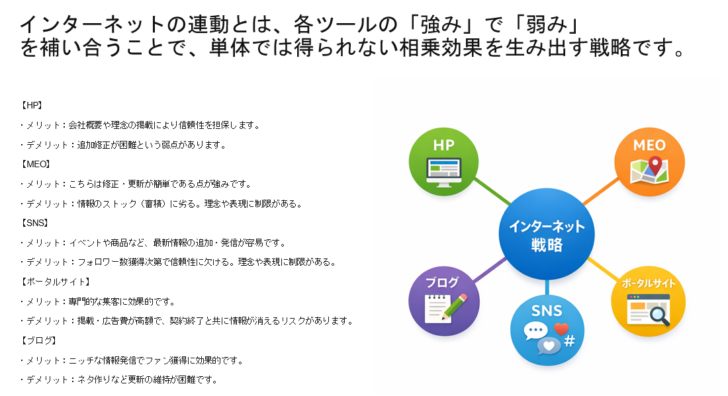炎上商法とは
炎上商法とは、過激な言動や行動、扇情的な広告などによって、意図的に世間の批判や反感を買うことで注目を集め、知名度や売り上げを向上させようとするマーケティング手法です。
炎上商法のメリット
- 低コストで短期間に大きな注目を集めることができる
- 既存の顧客層だけでなく、新たな顧客層を獲得できる可能性がある
- 話題性が高まることで、メディアに取り上げられやすくなる
炎上商法のデメリット
- 企業やブランドのイメージが大きく損なわれるリスクがある
- 一時的な注目を集めることはできても、長期的な信頼関係を築くことは難しい
- 炎上が制御不能になり、社会的な問題に発展する可能性がある
- 法律や倫理に抵触する行為は、法的責任を問われる可能性がある
炎上商法の事例
- 芸能人やインフルエンサーによる過激な発言や行動
- 企業による不適切な広告やプロモーション
- 政治家や団体による扇情的な発言や活動
炎上商法に関する注意点
炎上商法は、短期的には効果があるかもしれませんが、長期的に見ると企業やブランドにとって大きなリスクを伴う手法です。炎上商法を行う際は、そのリスクを十分に理解し、慎重に検討する必要があります。また、炎上商法が社会的に許容される範囲を超えないように、倫理的な観点からも注意が必要です。
炎上商法で有名になった人は数多くいますが、ここではその一部を紹介します。
アメリカのYouTuber。2017年に日本の青木ヶ原樹海で自殺者の遺体を撮影した動画を投稿し、世界的な批判を浴びた。
スウェーデンのYouTuber。過去に人種差別的な発言や行動を繰り返し、炎上を繰り返している。
アメリカ合衆国第45代大統領。過激な発言や政策で常に物議を醸し、支持者と反対派を二分している。
【企業やブランド】
化粧品会社。2020年に、競合他社や在日コリアンに対する差別的な文章を公式ウェブサイトに掲載し、大炎上した。
振り袖のレンタル・販売業者。2018年の成人式当日に突然店を閉鎖し、多くの新成人が晴れ着を着られなくなる事態を引き起こした。
これらの例からもわかるように、炎上商法は一時的な注目を集めることはできますが、長期的な信頼を失うリスクも高いです。
炎上商法によって一時的に知名度を上げた日本のインフルエンサーはいますが、「成功」の定義によって評価は分かれます。
短期的な注目度や話題性という点では、
過激な言動や炎上を繰り返すYouTuber。
暴露系配信で知られるYouTuber。
暴露系配信で政治家となり、その後除名された元参議院議員。
彼らはいずれも炎上商法的な手法で注目を集め、一定の成功を収めたと言えるかもしれません。しかし、長期的な信頼やイメージの構築という点では疑問が残ります。
一方で、炎上商法とは異なる手法で着実にファンを獲得し、成功しているインフルエンサーも多数存在します。
日本のトップYouTuber。
実験系動画で人気を集めるYouTuber。
自由奔放なキャラクターでバラエティ番組でも活躍するタレント。
彼らは炎上とは無縁でありながらも、多くの人々に支持されています。
「炎上商法で成功した」と言えるかどうかは、成功の定義によって異なりますが、長期的な視点で見た場合、炎上商法は必ずしも成功とは言えない可能性が高いです。
What is Flame Marketing?
Flame marketing is a marketing technique that aims to increase public recognition and sales by intentionally attracting public criticism and resentment through radical words and actions, sensational advertising, etc.
Advantages of Flame Marketing
Can attract a lot of attention in a short period of time at low cost
Possibility of acquiring new customers in addition to existing customers
Increased topicality makes it easier for the media to cover it
Disadvantages of Flame Marketing
There is a risk that the image of the company or brand will be significantly damaged
Even if it can attract temporary attention, it is difficult to build a long-term relationship of trust
The flame can get out of control and develop into a social problem
Actions that violate laws and ethics may result in legal liability
Examples of Flame Marketing
Extreme statements and actions by celebrities and influencers
Inappropriate advertising and promotions by companies
Sensational statements and activities by politicians and organizations
Points to note about Flame Marketing
Flame marketing may be effective in the short term, but it is a method that poses great risks to companies and brands in the long term. When engaging in flame marketing, it is necessary to fully understand the risks and consider them carefully. In addition, care must be taken from an ethical point of view to ensure that flame marketing does not exceed the limits of social acceptability.
There are many people who have become famous through flame marketing, but here are some of them.
Logan Paul
American YouTuber. In 2017, he posted a video of a suicide victim’s body in Aokigahara Jukai in Japan, which drew worldwide criticism.
PewDiePie
Swedish YouTuber. He has repeatedly made racist remarks and actions in the past, causing repeated flame wars.
Donald Trump
The 45th President of the United States. His radical remarks and policies have always caused controversy, dividing supporters and opponents.
[Companies and brands]
DHC
A cosmetics company. In 2020, it posted discriminatory text against competitors and Korean residents in Japan on its official website, causing a major uproar.
Hare no Hi
A rental and sales company for furisode. In 2018, the store suddenly closed on the day of the Coming of Age Ceremony, leaving many new adults unable to wear their formal attire.
As these examples show, while flame marketing can attract temporary attention, it also carries a high risk of losing long-term trust.
There are Japanese influencers who have temporarily gained fame through flame marketing, but their evaluations vary depending on the definition of “success.”
In terms of short-term attention and buzz,
Shibata
A YouTuber who repeatedly makes extreme statements and causes flames.
Korekore
A YouTuber known for his expose-type broadcasts.
Garcy
A former member of the House of Councilors who became a politician through expose-type broadcasts and was later expelled.
It can be said that all of them attracted attention using flame marketing techniques and achieved a certain degree of success. However, questions remain regarding their long-term trust and image building.
On the other hand, there are many influencers who have been successful by steadily gaining fans using methods other than flame marketing.
HIKAKIN
A top YouTuber in Japan.
Hajime Shacho
A popular YouTuber with experimental videos.
Fuwa-chan
A free-spirited personality and a talent who is active in variety shows.
They have no connection to flame wars, yet are supported by many people.
Whether or not you can say that flame war marketing has been successful depends on your definition of success, but from a long-term perspective, it is highly unlikely that flame war marketing can necessarily be called successful.


















